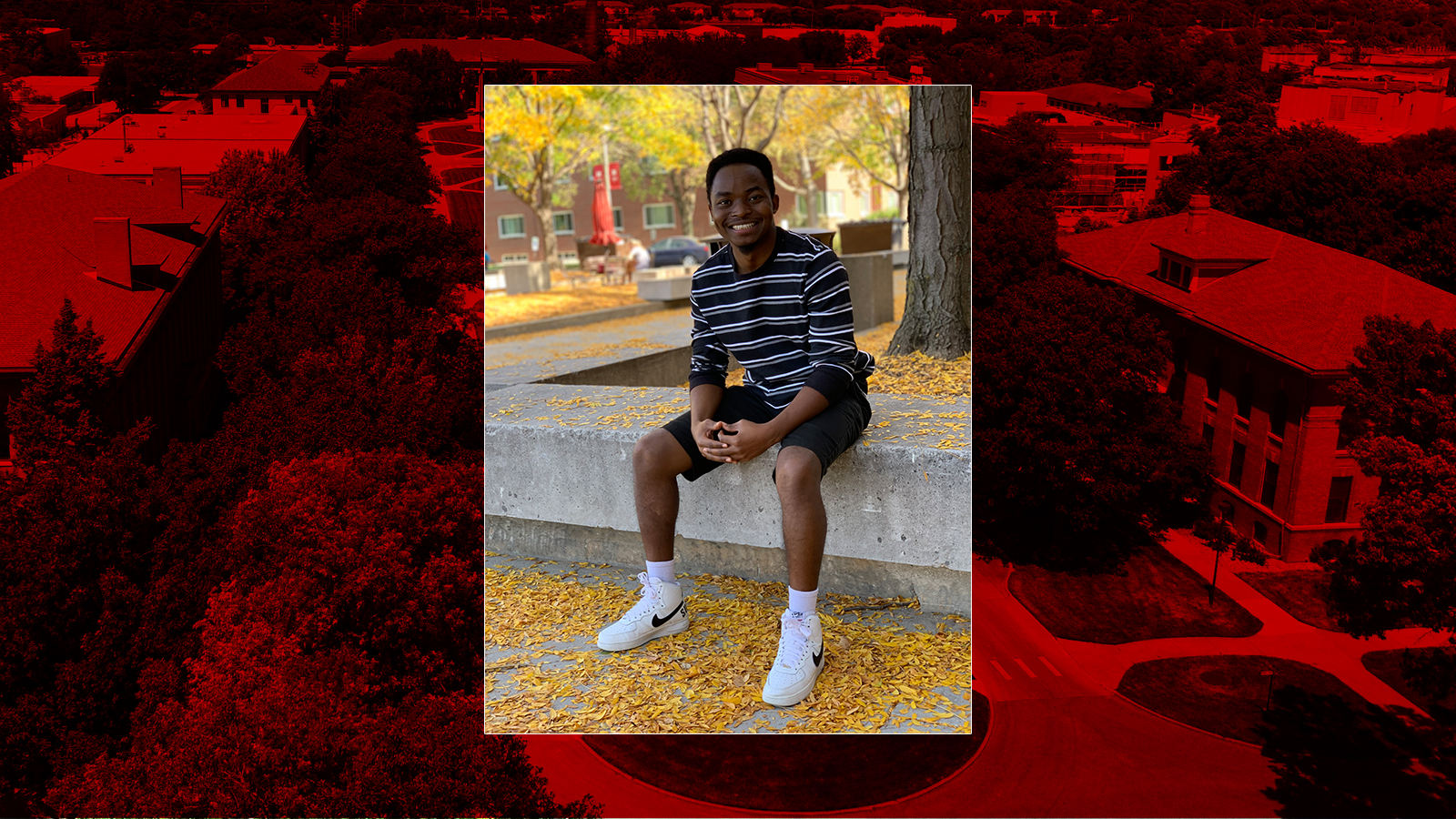Lincoln, Neb. —Four short years ago, Eugene Baraka first stepped foot onto the University of Nebraska-Lincoln campus, over 8,000 miles from home.
Baraka was among 50 students from Rwanda who were recruited to come to the United States and study integrated sciences in the College of Agriculture and Natural Resources Undergraduate Scholarship Program (CUSP). He had never heard of Nebraska until he took the CUSP program acceptance exam.
As a first-generation college student far from home, Baraka initially had a hard time adjusting. The time difference made it difficult to talk to his family at first, and they would sometimes end up talking at 2 a.m. or even later. Baraka struggled with the English language and knew more French than English upon arrival.
Baraka got involved on campus, and his engagement in different activities, groups, clubs and leadership positions has helped him forge bonds with his classmates and strengthen his English vocabulary.
One position that helped him grow was being the campus ambassador for the Agriculture Future of America (AFA). He recruited students to go to the annual AFA conference held in Kansas City, Missouri.
“I’m introverted by nature, so getting to hold meetings by myself and talk in front of people was really hard for me,” said Baraka. “It challenged me to get out of my comfort zone and talk to people and get to know them personally.”
To strengthen his time management skills, Baraka became a member of the University Health Center Student Advisory Board. He played a role in working with other members of the board to improve and advocate for health in students, faculty and staff at the university.
It was later that Baraka found a project at the university that would connect him back to his home of Rwanda. When he first became a scholar in the Undergraduate Creative Activities and Research Experience (UCARE) program, Baraka was unsure what he wanted to study, but knew it had to be about food security because he was in nutrition at the time. His advisor, Mary Willis, was working on a project about indigenous foods of Zambia, and Baraka assisted. Upon the conclusion of that project, Baraka had a question: Are there any indigenous foods in Rwanda?
Different countries in Africa are beginning to adopt a more Western diet, with foods that are not native to Africa. This inhibits the growth of indigenous foods, which are affordable, nutritious and easily accessible. Baraka suspected there would not be as many African indigenous foods in Rwanda. He recruited a friend from home to walk through the open-air market and record the foods that were available. Baraka then counted which ones were indigenous to Africa, America and so on, comparing the percentages. He was able to prove his hypothesis correct, and his research became the basis of this thesis, which he successfully defended.
During his time at the University of Nebraska-Lincoln, Baraka found a mentor in Willis, who became a sounding board for Baraka as he struggled to determine what to do upon graduation. He suggests all students try to find a mentor early on in their college careers.
“It was really hard, but Dr. Willis has been there encouraging me, showing me and reminding me how great I am,” Baraka said. “I could say the last year of college was one of the most productive years because of her, because she really pushed me to do more even when I didn’t feel like it.”
As Baraka prepared to receive his diploma this past weekend, he also is preparing for the future. He will be attending McGill University in Montreal, Quebec, Canada to receive his master’s degree in public health, specializing in epidemiology if possible. He wants to return to Rwanda after to invest in the health care system, helping analyze and focus on waterborne and infectious diseases.
Chandra Spangler | IANR (originally featured on IANR News)
